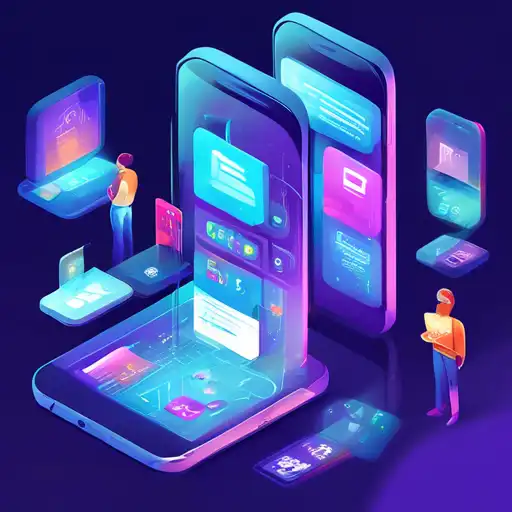Introduction to Mobile Development Trends
The mobile development landscape is continuously evolving, with new technologies and methodologies emerging at a rapid pace. As we look towards the future, several key trends are poised to redefine how apps are developed, deployed, and experienced by users worldwide. This article explores these pivotal trends, offering insights into what developers and businesses should watch for in the coming years.
1. The Rise of 5G Technology
5G technology is set to revolutionize mobile development by enabling faster data speeds, lower latency, and more reliable connections. This advancement will not only enhance user experiences but also open up new possibilities for app functionalities, such as real-time streaming and augmented reality (AR) features.
2. Artificial Intelligence and Machine Learning Integration
Artificial Intelligence (AI) and Machine Learning (ML) are becoming increasingly integral to mobile apps. From personalized user experiences to advanced analytics and automation, AI and ML are enabling apps to become more intelligent and responsive to user needs.
3. The Growth of Cross-Platform Development Tools
Cross-platform development tools like Flutter and React Native are gaining popularity, allowing developers to build apps for multiple platforms with a single codebase. This trend is expected to continue, reducing development time and costs while ensuring a consistent user experience across devices.
4. Enhanced Focus on App Security
As mobile apps handle increasingly sensitive data, security is becoming a top priority for developers. Future trends include the adoption of advanced encryption methods, biometric authentication, and secure coding practices to protect user data from breaches.
5. The Expansion of Internet of Things (IoT) Integration
The IoT is expanding the scope of mobile apps, enabling them to interact with a wide range of devices and systems. This integration is creating opportunities for innovative app functionalities, from smart home controls to health monitoring systems.
6. The Adoption of Modular and Instant Apps
Modular apps and instant apps are changing the way users interact with mobile applications. These technologies allow users to access app functionalities without downloading the full app, offering convenience and saving storage space.
Conclusion
The future of mobile development is bright, with numerous trends set to shape the industry in the years to come. By staying informed and adapting to these changes, developers and businesses can ensure they remain at the forefront of innovation, delivering cutting-edge apps that meet the evolving needs of users.
For more insights into mobile development, check out our technology section for the latest updates and trends.
